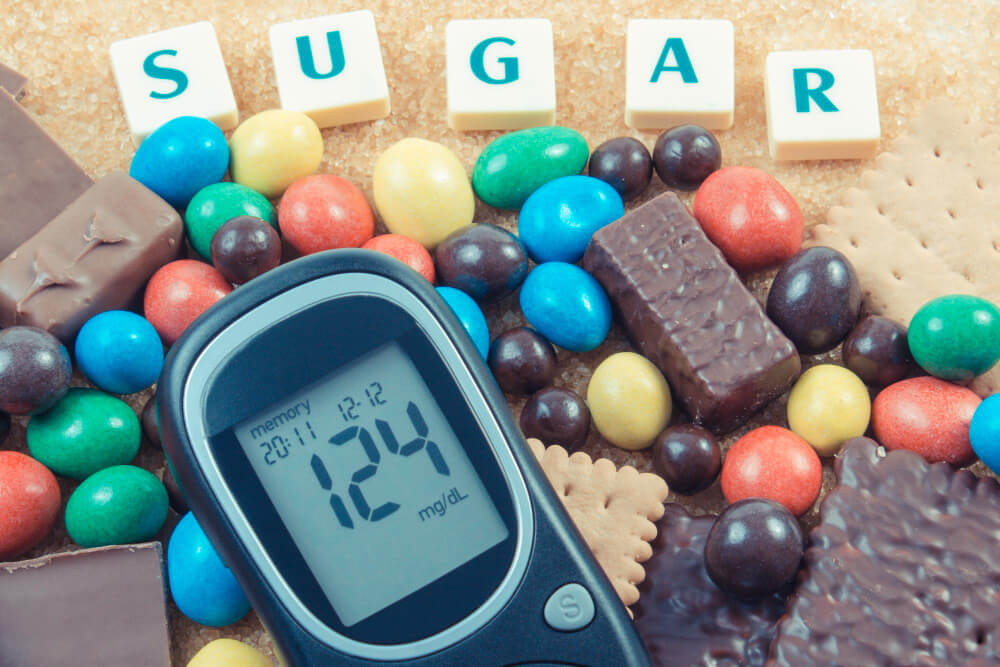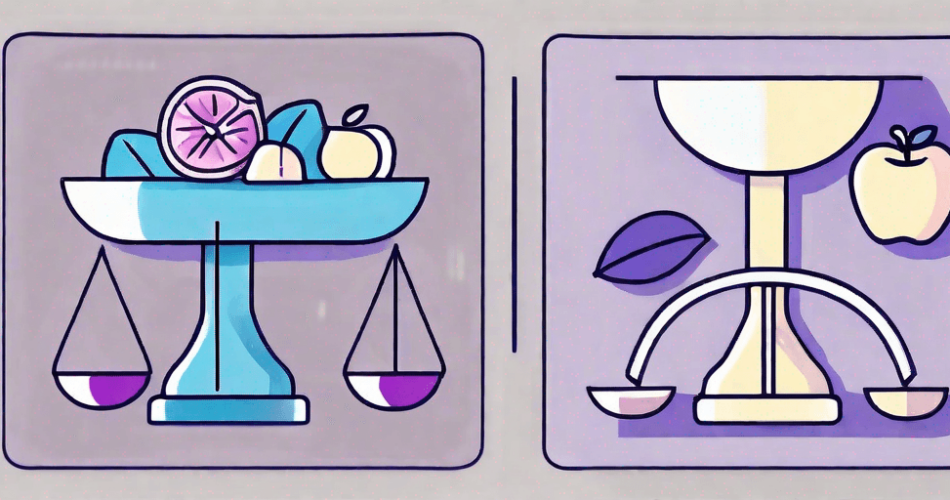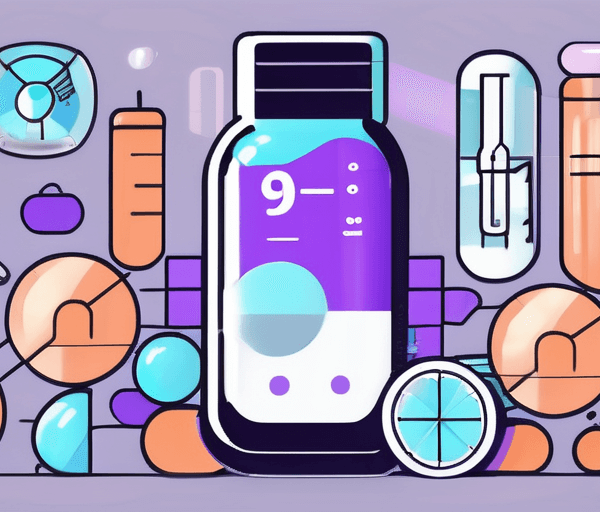Diabetes is a chronic condition that affects millions of people worldwide. It occurs when the body is unable to properly regulate blood sugar levels, leading to high or low levels of glucose in the bloodstream. As a result, individuals with diabetes must take proactive measures to balance their blood sugar and prevent complications. In this article, we will explore the different approaches to diabetes treatment, both traditional and emerging, and shed light on the importance of blood sugar balance in our overall health.
Understanding Diabetes: A Brief Overview
Before delving into the various treatment options, it is important to have a basic understanding of diabetes. Put simply, diabetes is a metabolic disorder characterized by elevated blood sugar levels. This condition occurs when the body either does not produce enough insulin or is unable to effectively use the insulin it produces. Insulin is a hormone that helps regulate blood sugar levels by allowing glucose to enter the body’s cells, where it is utilized for energy. Failure to maintain proper blood sugar control can lead to serious health complications over time.
Diabetes is a complex and multifaceted condition that affects millions of people worldwide. It is crucial to have a comprehensive understanding of the different types of diabetes, their causes, and the potential complications that can arise.
What is Diabetes?
Diabetes is a condition that occurs when the body is unable to regulate blood sugar levels effectively. There are different types of diabetes, including type 1, type 2, and gestational diabetes, each with its own distinct causes and characteristics.
Types of Diabetes
Type 1 diabetes is an autoimmune disease in which the immune system mistakenly attacks and destroys the insulin-producing cells in the pancreas. This results in a complete absence of insulin, requiring those with type 1 diabetes to rely on injected insulin for survival.
Type 2 diabetes, on the other hand, is the most common form of diabetes and is typically associated with poor lifestyle habits and genetic factors. In type 2 diabetes, the body either resists the effects of insulin or does not produce enough insulin to meet the body’s needs.
Gestational diabetes occurs during pregnancy and usually resolves after childbirth. However, women who have had gestational diabetes are at an increased risk of developing type 2 diabetes later in life.
Understanding the different types of diabetes is essential in order to tailor treatment plans and management strategies to each individual’s specific needs. It is important to work closely with healthcare professionals to develop a personalized approach to diabetes care.
Symptoms and Complications of Diabetes

The symptoms of diabetes can vary depending on the type and severity of the condition. However, some common symptoms include frequent urination, excessive thirst, unexplained weight loss or gain, fatigue, blurred vision, and slow-healing wounds.
It is crucial to recognize the symptoms of diabetes and seek medical attention promptly. Early diagnosis and intervention can help prevent or delay the onset of complications associated with diabetes.
If left unmanaged, diabetes can lead to a variety of complications, including cardiovascular disease, kidney damage, nerve damage, eye problems, and slow healing of wounds. These complications can significantly impact an individual’s quality of life and overall well-being.
Managing diabetes requires a comprehensive approach that includes regular monitoring of blood sugar levels, adopting a healthy lifestyle, and adhering to a personalized treatment plan. With proper management, individuals with diabetes can lead fulfilling and active lives.
The Importance of Blood Sugar Balance
Role of Blood Sugar in Our Body
Blood sugar, also known as glucose, serves as the primary source of energy for our body’s cells. It is derived from the carbohydrates we consume and is transported through the bloodstream to various organs and tissues. Insulin plays a crucial role in facilitating the entry of glucose into the cells, where it is used for energy production.
In addition to providing energy, blood sugar also plays a vital role in maintaining the overall function of our body. It helps regulate our body temperature, supports brain function, and aids in the proper functioning of our muscles and organs. Without a balanced blood sugar level, our body’s ability to perform these essential functions can be compromised.
When we consume carbohydrates, they are broken down into glucose in the digestive system. This glucose is then absorbed into the bloodstream, where it is transported to cells throughout the body. Insulin, a hormone produced by the pancreas, acts as a key that unlocks the cells, allowing glucose to enter and be used as fuel.
However, maintaining blood sugar balance is not as simple as it may seem. Many factors can influence our blood sugar levels, including the types and amounts of carbohydrates we consume, our physical activity levels, and even our stress levels. It is important to be mindful of these factors and make conscious choices to support optimal blood sugar balance.
What Happens When Blood Sugar is Imbalanced?

When blood sugar levels are excessively high or low, it can disrupt the normal functioning of our body. In the case of high blood sugar, the excess glucose can damage blood vessels over time, leading to long-term complications such as heart disease, kidney failure, and nerve damage.
High blood sugar, also known as hyperglycemia, can occur due to various reasons, including poor diet, lack of physical activity, and certain medical conditions such as diabetes. When blood sugar levels are consistently elevated, it can put a strain on our body’s organs and systems, increasing the risk of developing chronic diseases.
On the other hand, low blood sugar, known as hypoglycemia, can cause symptoms such as dizziness, shakiness, confusion, and even loss of consciousness. This can happen when we skip meals, engage in prolonged physical activity without adequate fuel, or take certain medications that lower blood sugar levels.
It is important to strike a delicate balance in order to maintain optimal health and prevent these complications. Monitoring blood sugar levels regularly, making healthy food choices, engaging in regular physical activity, and managing stress levels are all key factors in achieving and maintaining blood sugar balance.
Furthermore, understanding the glycemic index of different foods can also be helpful in managing blood sugar levels. The glycemic index ranks carbohydrates based on how quickly they raise blood sugar levels. Foods with a low glycemic index, such as whole grains, legumes, and non-starchy vegetables, are digested and absorbed more slowly, resulting in a more gradual rise in blood sugar levels.
By paying attention to our blood sugar levels and making conscious choices to support balance, we can optimize our overall health and well-being. It is a small but significant step towards leading a healthy and fulfilling life.
Traditional Approaches to Diabetes Treatment
Diabetes is a chronic condition that affects millions of people worldwide. It requires ongoing management and treatment to maintain blood sugar levels within a healthy range. While there is no cure for diabetes, there are several traditional approaches to treatment that have proven to be effective in controlling the disease.
Insulin Therapy

This initial approach is a cornerstone of treatment for individuals with type 1 diabetes, as they are unable to produce insulin on their own. Insulin is a hormone that allows the body to use glucose for energy. Without insulin, glucose builds up in the bloodstream, leading to high blood sugar levels.
The therapy involves regular injections of insulin to mimic the body’s natural insulin production and maintain blood sugar control. It is administered using various devices, such as insulin pens or pumps, allowing for precise dosing and flexibility. These devices have made insulin administration more convenient and less invasive for patients.
For those with type 2 diabetes, insulin therapy may also be necessary if oral medications and lifestyle modifications are insufficient in controlling blood sugar levels. Type 2 diabetes is characterized by insulin resistance, meaning the body does not use insulin properly. Insulin therapy can help overcome this resistance and improve blood sugar control.
Oral Medications

In addition to insulin therapy, oral medications are often prescribed to individuals with type 2 diabetes to help improve insulin sensitivity, increase insulin production, and reduce glucose production in the liver. These medications work in various ways to achieve optimal blood sugar control.
Some common oral medications for type 2 diabetes include metformin, sulfonylureas, thiazolidinediones, and DPP-4 inhibitors. These medications may be taken alone or in combination with other drugs, depending on the individual’s needs and response to treatment.
Lifestyle Modifications

Healthy lifestyle modifications play a crucial role in diabetes management. Engaging in regular exercise, following a balanced diet, and maintaining a healthy weight are essential components of a comprehensive treatment plan.
Physical activity helps lower blood sugar levels by increasing insulin sensitivity. It allows the body to use insulin more effectively, facilitating the uptake of glucose into cells for energy. Exercise also promotes weight loss, which is particularly beneficial for individuals with type 2 diabetes, as excess weight can contribute to insulin resistance.
A well-balanced diet is equally important in diabetes management. It should include a variety of nutrient-rich foods, such as fruits, vegetables, whole grains, lean proteins, and healthy fats. Limiting the intake of sugary and processed foods can help prevent blood sugar spikes and promote stable glucose levels.
Furthermore, weight management is crucial for individuals with diabetes, as excess weight can worsen insulin resistance and increase the risk of complications. Achieving and maintaining a healthy weight through a combination of regular exercise and a balanced diet can significantly improve blood sugar control and overall well-being.
Telemedicine

Telemedicine provides an opportunity to streamline diabetes care, making it more accessible and efficient for both patients and healthcare providers. The convenience of remote consultations allows for more frequent check-ins, which can lead to better blood sugar control and overall health outcomes.
Conclusion
Diabetes is a complex condition that requires a multifaceted approach to treatment and management. While traditional methods such as insulin therapy, oral medications, and lifestyle modifications remain the cornerstone of diabetes care.
Taking proactive steps to manage diabetes is crucial for preventing complications and enhancing quality of life. It’s essential to work closely with healthcare professionals to tailor a treatment plan that’s right for you. If you’re looking to further personalize your diabetes care and explore new treatment options, consult with a specialist today.
Ready to take control of your diabetes management? Consult with a specialist to tailor a treatment plan that’s right for you. Book an appointment today using NowServing and take the first step towards a healthier, happier life.
Whether you’re newly diagnosed or have been managing diabetes for years, remember that help is just a click away.



